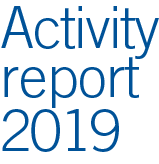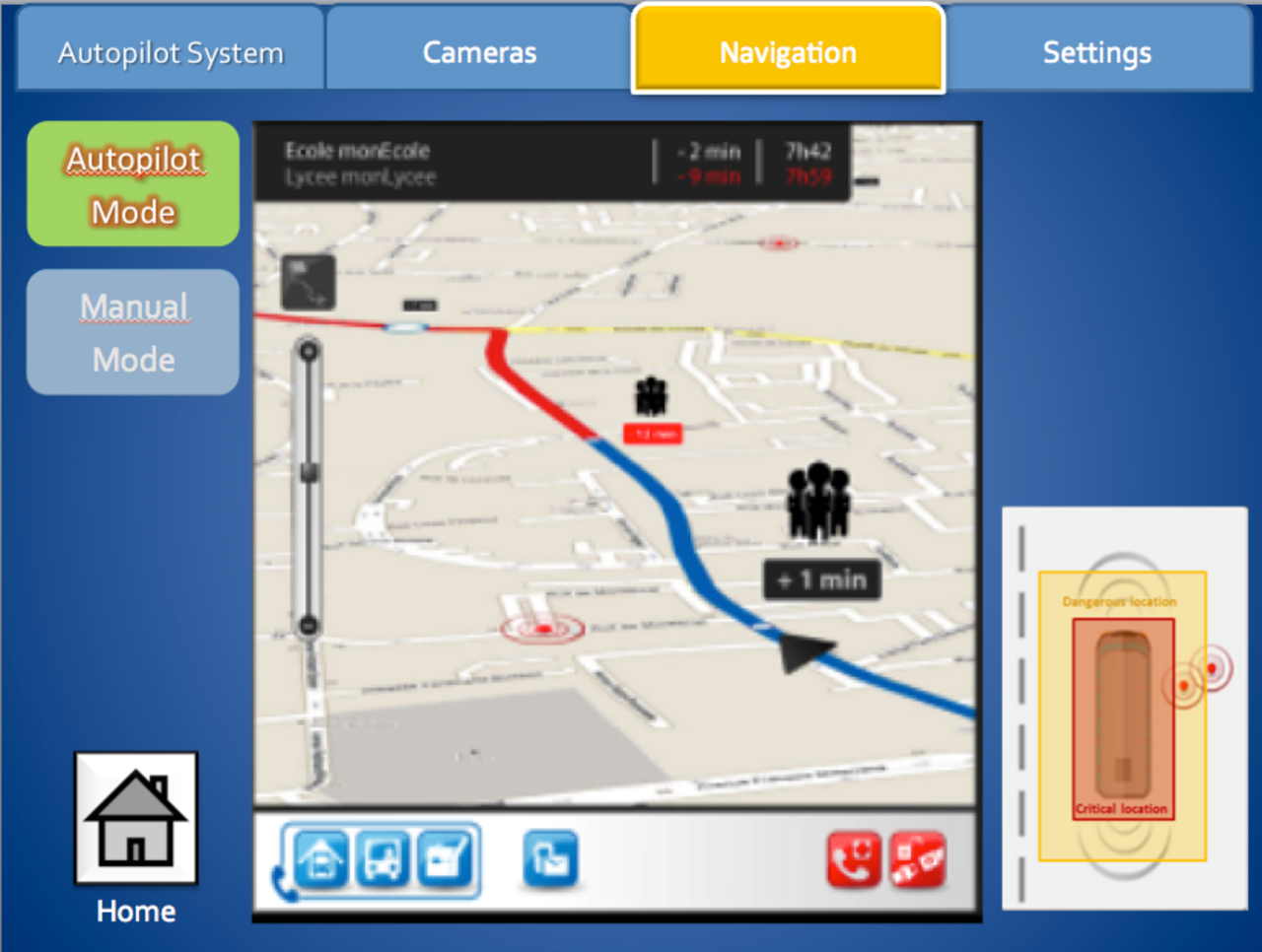Reference

Making progress in the areas of systems and services for multimodal, intelligent, clean and seamless mobility
Simulation platforms are used for system prototyping and evaluation. With the increasing use of two-wheeled vehicles, IFSTTAR has developed a bicycle simulator and equipped it with new functions and sensors. The implementation of a virtual systems approach to cycling use under the most realistic conditions possible allows us to foresee future travel scenarios and to begin to study a number of issues.
Connected cars, the delegated driving car and shared cars are overturning traditional representations of car use. Research conducted in 2019 has studied the actions and responses of humans when interacting with these new environments, as well as their ability to use them. Work on the design of a man-machine interface has been proposed, as well as a forward-looking study on robotic mobility.
Studying cyclist behaviour and evaluating virtual reality innovations
IFSTTAR has developed a bicycle simulator in addition to its other immersive simulators to study the behaviour of cyclists and evaluate travel aids. It has been used in several projects, including two completed in 2019.
Built in 2013-2014 as part of incentive funding from the Scientific Directorate and in partnership with LaPEA (Laboratory of Applied Psychology and Ergonomics; UMR Université Paris Descartes/IFSTTAR), IFSTTAR's bicycle simulator was the sixth in the world to be built for research purposes. It was upgraded in the years that followed, notably as part of the Vibrasimu project (2017-2019) in partnership with the EASE laboratory (Environment-Development, Safety and Eco-design; AME department). Today, the simulator has two force feedback systems, producing an airstream that depends on the speed, and is the only simulator of this type in the world that reproduces the vibrations caused by pavement irregularities.
Five experiments have been conducted on the simulator since its creation. For example, one was conducted as part of the ANR CYCLOPE project (2016-2019) which focused on the development and evaluation of an innovative low-cost warning system for cyclists in the context of interactions with buses. Two other experiments were conducted as part of a thesis funded by the European Marie Curie SaferUp project. The objective was to study the effects of pavement characteristics (geometry, skid resistance) on cyclist safety.
Finally, the bicycle simulator is one of the nine immersive travel simulators that make up the facilities managed by the PICS-L SimTeam. A steering committee and a roadmap have been created for this facility in order to best meet the needs of users attached to five laboratories of the new Université Gustave Eiffel, of which IFSTTAR is a part.
Design and development of driver assistance systems
The ADAS&ME project focuses on the design and development of advanced driver assistance systems (based, where appropriate, on the partial or total automation of driving) for 4 different types of vehicle: cars, trucks, buses and motorcycles. The challenge is to design real-time monitoring functions for drivers (some of which are shared and cross-functional), with a view to assessing their physiological state (fatigue, or "heat stroke" in the case of motorcyclists), their distraction (visual and cognitive), their stress level or their emotional feelings (anxiety, joy, anger or fear).
In the context of this project, the IFSTTAR research team was particularly involved in two related activities:
- Setting up a pre-pilot study aimed at collecting empirical data for the development of monitoring functions.
- Participating in the survey to assess acceptability and user needs.
As part of the transcultural European approach pursued in this project, this work resulted in the design, dissemination and processing of the French part of the survey. A proposal for human-machine interface (HMI) specifications for buses with automated docking was drawn up, together with some ergonomic recommendations.



